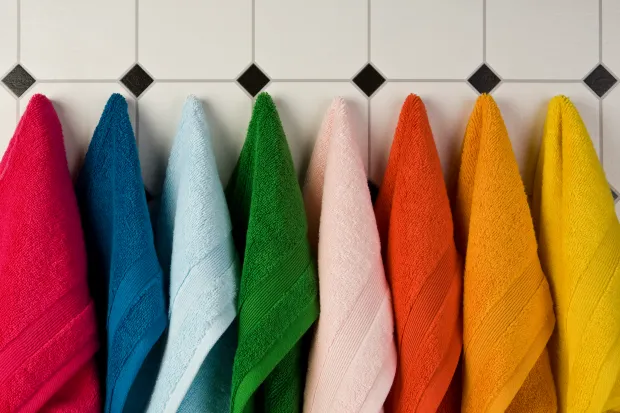Nigerian public health professionals have sounded the alarm over the widely practised but unhealthy habit of sharing bath towels among family members, cautioning that it could facilitate the transmission of infectious diseases within households.
According to medical experts, what many consider a harmless or convenient practice is, in reality, a silent conduit for the spread of bacteria, viruses, and fungi, some of which can survive on moist, contaminated fabrics for days. They stressed that bath towels, due to their ability to retain moisture, body fluids, sweat, dead skin cells, and remnants of personal care products, create an ideal breeding ground for harmful microorganisms.
Dr. Solomon Olorunfemi, a Senior Registrar in Community Medicine and Primary Care at the Federal Medical Centre, Abeokuta, Ogun State, explained that this common domestic behaviour is exposing many families to avoidable skin and infectious conditions. He noted that sharing towels, especially in households with suboptimal hygiene practices, could lead to the transmission of ailments such as ringworm, scabies, lice infestations, and athlete’s foot.
“People often assume that sharing towels within the family poses no harm, but towels collect dead skin cells, sweat, and even soap or cream residues, all of which promote microbial growth. Once infected, a towel can easily spread pathogens through contact, particularly if the user has cuts or broken skin,” Dr. Olorunfemi stated.
He expressed particular concern for vulnerable groups, including children, the elderly, and individuals with compromised immune systems such as people living with HIV/AIDS. According to him, what might start as a minor fungal infection in these groups could quickly escalate into severe health complications.
The physician recommended that every family member should be assigned a personal towel and that households should entirely discourage the practice of sharing, especially when someone in the home has an active skin condition or is unwell. He also advised that towels should be washed after every three to four uses or immediately when damp or soiled, preferably in hot water of at least 60 degrees Celsius. Disinfectants should also be used during washing to ensure pathogens are eliminated.
“Towels must be dried thoroughly after use and should not be kept on the bathroom floor or in areas near toilets, as this increases the chances of contamination,” he said. Dr. Olorunfemi further emphasised the importance of instilling good hygiene practices in children to help prevent infections spread through shared personal items.
Also commenting, public health physician Dr. Noah Ayinde echoed similar concerns, adding that bath towels rank among the most bacteria-laden household items due to their frequent contact with the human body and exposure to moisture. He noted that the humid environment in bathrooms provides an ideal setting for bacteria and fungi to thrive, particularly when towels fail to dry fully between uses.
Dr. Ayinde warned that even small abrasions on the skin could serve as entry points for harmful microbes when individuals use infected towels, further increasing the risk of illness for those with weakened immune systems.
“Residue from personal care products or detergents left on towels can also cause irritation or allergic reactions in some users, particularly if the towel has been used by someone else who may tolerate the substance,” he noted.
He explained that the transmission process is subtle yet effective. “If a family member with a skin infection uses a towel and another person uses the same towel to wipe their face, armpits, feet, or groin, they can easily transfer infectious agents. In a damp environment, such infections can multiply rapidly.”
Dr. Ayinde strongly advised that families assign individual towels to each member, regardless of age, and never share them under any circumstances—particularly not when someone in the household has a visible rash, fungal infection, or skin condition.
In cases where sharing becomes unavoidable, he suggested immediate washing of the towel in hot water with disinfectants before reuse. He also warned against folding and storing damp towels, as this habit encourages microbial growth. Instead, towels should be hung in well-ventilated areas to allow them to dry completely between uses.
Both experts concluded by urging Nigerian families to adopt better hygiene practices, noting that the simple act of not sharing towels could prevent a range of common yet avoidable health problems.

